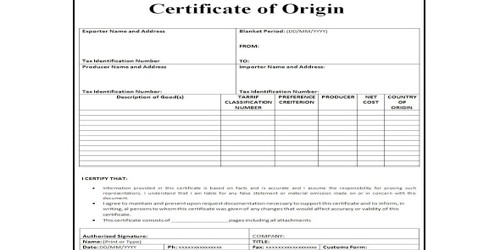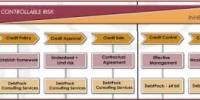Certificate of Origin
A Certificate of Origin or CO is a document that indicates where a product came from. The certificate describing the place of manufacture of the growth of certain articles is known as the certificate of origin. It is a document that identifies the origin of goods being exported and is issued by a Chamber of Commerce. This document is used in foreign trade and is prepared by the exported and usually signed by the secretary. It is required by customs in the buyer’s country to determine tariff rates and determine the origin of the goods. President of the chamber of commerce or any such other body.
The Certificate of Origin has information about the product, such as its destination and country of export. The type of document depends on the requirement of your overseas customer and the final destination of the consignment. We use this document when companies and other entities trade internationally, i.e., when they import and export. The certificate of origin contains information regarding the product, its destination, and the country of export. It also tells us whether that country manufactured and processed it completely.
There are two types of certificates: 1. Non-preferential or ordinary COs. 2. Preferential Cos.
- Non-preferential – This is the most common type. A non-preferential CO specifies that the good is not eligible for lower tariffs or preferential treatment.
- Preferential – A preferential certificate shows that the product qualifies for lower tariffs. It will also specify other exemptions that may exist in a trade agreement.
Benefits
This certificate is required for customs clearance of imported goods. For many products exported to foreign markets, using the correct CO, enables the buyer in a foreign country to import your product at a lower tariff, compared with other international suppliers. A question may arise why this certificate is such an important document for customs clearance. The CO effectively makes your product more cost-efficient to your buyers and easier to sell.
















